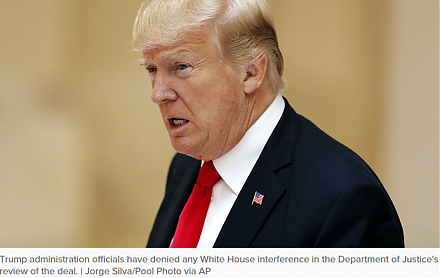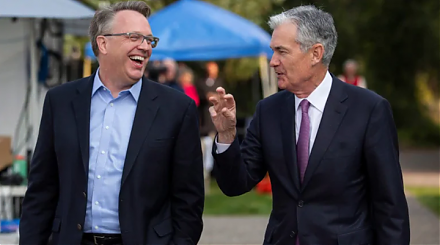

2018-01-12 07:37:00 Fri ET
technology antitrust competition bilateral trade free trade fair trade trade agreement trade surplus trade deficit multilateralism neoliberalism world trade organization regulation public utility current account compliance
The Economist delves into the modern perils of tech titans such as Apple, Amazon, Facebook, and Google. These key tech titans often receive plaudits for making the world a better place. However, some pundits accuse these giants of being BAADD or big, addictive, anti-competitive, and destructive to democracy. Politicians from European Union and to U.S. Congress grill their CEOs; regulators impose taxes and fines on these tech titans; and one-time backers warn of their power to cause harm.
Techlash complaints, privacy issues, and fake news are rampant these days. Big tech platforms, particularly Amazon, Facebook, and Google, raise grave concerns about fair competition and consumer protection because these tech platforms often benefit from legal exemptions. Unlike publishers and media firms, Facebook and Google rake in hefty ad profits with minimal monitor and responsibility for content curation. For many years, American buyers on Amazon need not pay sales taxes. Also, Apple keep its profits as large offshore cash stockpiles in order to legitimately avoid paying U.S. corporate income taxes.
These platform orchestrators provide digital infrastructure for online ad revenue, consumer data, and service provision. Most of their services appear to be free, but consumers need to pay for these services by giving away their personal data. Their high stock valuation reinforces digital dominance and market concentration.
For instance, Amazon accounts for about half of U.S. online sales while Facebook and Google attract 70% of online advertisements in America. It is highly likely for regulatory agencies to tame these tech titans by probing into privacy invasion and tax avoidance. Either these tech giants break up into smaller entities (as Alphabet now prepares for Google and other subsidiaries), or the tech titans pay in the form of taxes, fines, or compliance costs.
If any of our AYA Analytica financial health memos (FHM), blog posts, ebooks, newsletters, and notifications etc, or any other form of online content curation, involves potential copyright concerns, please feel free to contact us at service@ayafintech.network so that we can remove relevant content in response to any such request within a reasonable time frame.
2019-05-30 16:44:00 Thursday ET

AYA Analytica finbuzz podcast channel on YouTube May 2019 In this podcast, we discuss several topical issues as of May 2019: (1) Our proprietary alp
2017-11-05 09:45:00 Sunday ET

President Trump criticizes the potential media merger between AT&T and Time Warner, the latter of which owns the anti-Trump media network CNN. President
2020-11-22 11:30:00 Sunday ET

A brief biography of Andy Yeh Andy Yeh is responsible for ensuring maximum sustainable member growth within the Andy Yeh Alpha (AYA) fintech network pla
2022-05-05 09:34:00 Thursday ET

Corporate payout management This corporate payout literature review rests on the recent survey article by Farre-Mensa, Michaely, and Schmalz (2014). Out
2019-11-19 09:33:00 Tuesday ET

American unemployment declines to the 50-year historical low level of 3.5% with moderate job growth. Despite a sharp slowdown in U.S. services and utilities
2019-12-10 09:30:00 Tuesday ET

Federal Reserve institutes the third interest rate cut with a rare pause signal. The Federal Open Market Committee (FOMC) reduces the benchmark interest rat